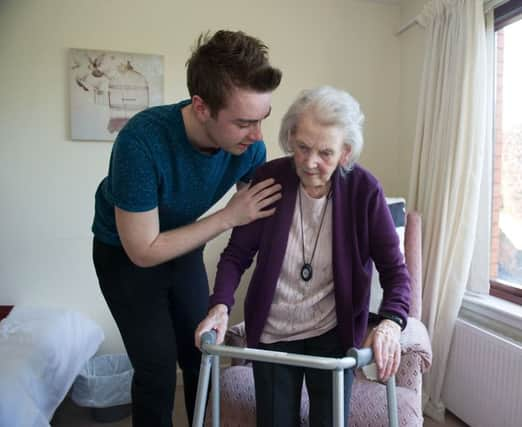Professor Ian Welsh: Stories of self-help and dedication spotlight what it is to be a human


The purpose was to amplify voices that are too seldom heard, raise awareness of the topics and issues tackled, and to drive improvement in health and social care. But the project has become much more than that. It’s become a powerful movement in its own right, creating a community of support around the stories shared.
Stories are part of the fabric of human life. They are how we build relationships with one another, a basic component of our communication style that solidifies our understanding of others. Humans of Scotland reaches out to people with messages beyond the experience and understanding of many. By telling the story, however, that gap is bridged, and readers empathise and connect with the storyteller.
Advertisement
Hide AdAdvertisement
Hide AdWhen we started Humans of Scotland, we did not envisage people being so generous with their time and with the details of their lives. People have been open and giving, and gathering the stories has been enlightening, confirming what we already knew – that we are all natural storytellers.
The Humans of Scotland book, launched last month shares a number of these stories – it’s available on our website and is being distributed to all public libraries in Scotland.
One of the themes in many stories is the concept of self management, of people in the driving seat of recovery and dealing with ongoing conditions. Self management empowers and is proven to yield positive outcomes when it is built around the right support and input.
As a champion of self management and administrator of the Self Management Fund for Scotland on behalf of the Scottish Government, we hear stories from the projects we fund that are full of hope. For the last decade we have led on this fund, covering 12 rounds and nearly £20 million of grants. What is important to us is the number of people now successfully self managing, in employment or with volunteering opportunities.
In the past ten years the fund has reached more than 200,000 people, created 285 jobs and 1,752 volunteering posts. The opportunities it has offered have been life changing.
The ALLIANCE funds Waverley Care to development a self management and peer mentoring programme of young people aged 19-30 living with HIV and providing one-to-one and group support.
Wendy, who volunteered and now works for Waverley Care, said: “I wanted to build structure and routine into my own life at the time, and I thought I knew a lot about blood borne viruses, but I quickly found I didn’t – so volunteering triggered an interest to keep learning.
“It’s all about the people we work with and getting the opportunity to help a really stigmatised group.”
Advertisement
Hide AdAdvertisement
Hide AdOne of the success of self management is hearing from the people who benefit from different approaches. Michelle, who self manages bipolar disorder, accessed a course funded by the ALLIANCE. She said: “I took part in Bipolar Scotland’s self management training course and found it extremely helpful.
“The course materials were excellent and I enjoyed taking part in the discussions which helped me to make connections. I felt more able to take control of my life and learned how to make informed decisions.”
Wendy and Michelle’s stories have both been featured in the Humans of Scotland series. Both are testament to the resilience we see displayed in many of the stories and show that the self management journey is one we can all learn from and appreciate. As we continue to tell people’s stories as part of the series, we ourselves are learning more about the real and personal impact of our Self Management Fund. It is privilege to administer the fund but even more of a joy to learn of its positive outcomes.
During Self Management Week (7-11 October) the ALLIANCE will announce the new round of funded projects and administer awards for this year’s applicants. We can only look forward to continued success for the organisations we support and those whom they engage in support and services.
Prof Ian Welsh OBE, chief executive, the Health and Social Care Alliance Scotland (the ALLIANCE).